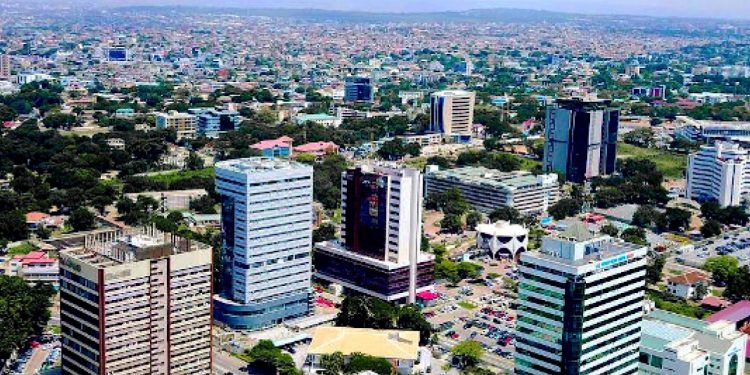Top 10 richest countries in Africa
GDP per Capita is one of the best measures of a country’s wealth as it provides an understanding of how each country’s citizens live on average, showing a representation of the quantity of goods and services created per person.
This article has prepared a list of the 10 African countries with the highest GDP per Capita in 2021. The top 10 list of the Richest Countries in Africa is drafted on the basis of a report given by the International Monetary Fund (IMF) and World Bank.
10. Morocco
GDP Per Capita (in US$): $3,409
On the economic front, the shock of COVID-19 has pushed the Moroccan economy into its first recession since 1995. Economic output contracted by 15.1% in the second quarter of 2020, primarily due to the lockdown and a sharp reduction in exports caused by the pandemic’s disruption to global value chains and the collapse of receipts from tourism.
The shock to supply and demand, triggered by the pandemic, has been compounded by the fall in agricultural production due to a severe drought. Although activity picked up in the third and fourth quarters of 2020, the government’s preliminary estimates indicate that Morocco’s real GDP contracted by 7% in 2020, leading to an increase in unemployment from 9.2% to 11.9%.
9. Algeria
GDP Per Capita (in US$): $3,449
The economic crisis caused by the pandemic follows five consecutive years of slowdown in GDP growth (2015-2019) in Algeria, driven by a shrinking hydrocarbon sector, a labyrinthine and public-led model of growth, and a private sector struggling to become the new engine of economic growth.
The hydrocarbon industry, which accounted for 20% of GDP, 41% of fiscal revenues, and 94% of export earnings in 2019, is experiencing a structural decline.
8. Egypt
GDP Per Capita (in US$): $3,606
Egypt’s recent macroeconomic and structural reforms stabilized the economy and have allowed the country to enter the global COVID-19 crisis with improving fiscal and external accounts. However, the adverse repercussions of the pandemic have since undermined this recent progress, shedding light on longstanding challenges.
These include sluggish private sector activity and job creation, especially in the formal sector, underperforming non-oil exports and Foreign Direct Investment (FDI), elevated government debt-to-GDP ratio (despite its significant reduction in recent years), below-potential revenue mobilization, and an unfavourable budget structure, with limited allocations to key sectors, such as health and education.
7. Namibia
GDP Per Capita (in US$): $4,412
Namibia is a small country of about 2.5 million people, with a long coastline on the South Atlantic, bordering South Africa, Botswana, Zambia and Angola. It is the driest country in Sub-Saharan Africa and is rich in mineral resources, including diamonds and uranium.
Namibia is largely dependent on investments in mineral extraction and government spending and has suffered from falling commodity prices, weak growth in key trade partners (Angola, South Africa) and tight fiscal policy on the back of the government’s effort to rebalance public finances.
6. Libya
GDP Per Capita (in US$): $4,733
Libya entered 2021 as a divided nation aspiring for recovery and healing. With intensifying conflict and a blockade of oil terminals and fields, the economy registered one of the worst performances in recent records for the most part of 2020.
However, if the current rapprochement remains on track, a significant economic recovery in Libya from the 2020 slump is within reach in the forthcoming year. With major maintenance problems still pending, oil production is projected to reach 1.1 million barrels per day (MBD) in 2021. This would lead to a rebound in real GDP growth, to 67% in 2021. In terms of the level of GDP, the economy would still be 23% smaller than that in 2010, the year prior to the start of the conflict.
5. South Africa
GDP Per Capita (in US$): $5,236
South Africa has made considerable strides to improve the wellbeing of its citizens since its transition to democracy in the mid-1990s, but progress has stagnated in the last decade. The percentage of the population below the upper-middle-income-country poverty line fell from 68% to 56% between 2005 and 2010 but has since trended slightly upwards to 57% in 2015 and is projected to reach 60% in 2020.
Structural challenges and weak growth have undermined progress in reducing poverty, which have been heightened by the COVID-19 pandemic. The achievement of progress in household welfare is severely constrained by rising unemployment, which reached an unprecedented 32.5 percent in the fourth quarter of 2020. The unemployment rate is highest among youths aged between 15 and 24, at around 63%.
4. Botswana
GDP Per Capita (in US$): $7,036
Botswana is located at the centre of Southern Africa, positioned between South Africa, Namibia, Zambia, and Zimbabwe. One of the world’s poorest countries at independence in 1966, it rapidly became one of the world’s development successes.
Significant mineral (diamond) wealth, good governance, prudent economic management and a relatively small population of slightly more than two million, have made it an upper-middle-income country with a transformation agenda of becoming a high-income country by 2036.
While a recovery is expected in 2021 due to a favourable outlook for the diamond industry, the economic impact of COVID-19 is likely to be deep and long-lasting.
3. Gabon
GDP Per Capita (in US$): $7,785
Gabon is an upper-middle-income country. The fifth-largest oil producer in Africa, it has had strong economic growth over the past decade, driven by its production of oil and manganese. The oil sector has accounted for 80% of exports, 45% of GDP, and 60% of fiscal revenue on average over the past five years. However, as the country is facing a decline in its oil reserves, the Gabonese government has decided to diversify its economy.
This expected growth will be undermined by the COVID-19 crisis and the further decline in oil prices. The sharp drop in domestic revenue mobilization, exports and foreign direct investment will lead to a major fiscal deficit.
2. Equatorial Guinea
GDP Per Capita (in US$): $8,000
has been one of the fastest-growing economies in Africa in the past decade. After the discovery of large oil reserves in the 1990s, Equatorial Guinea became the third-largest producer of oil in Sub-Saharan Africa, after Nigeria and Angola.
More recently, substantial gas reserves have also been discovered. However, the country macroeconomic and fiscal situation has deteriorated following the oil price drop.
1. Seychelles
GDP Per Capita (in US$): $12,648
The economic and social shock from COVID-19 (coronavirus) on the Seychellois economy is severe. Economic growth declined significantly in 2020 to -13.5% from 3.9% in 2019 due to the significant disruptions in economic activities in Seychelles, driven by lower tourism activities which declined by more than 60%.
In addition, the fiscal deficit widened to 22.6% of gross domestic product (GDP) in 2020 on account of lower revenues and higher COVID-19-related spending and is projected to be 15.3% in 2021. Recovery is expected to gradually begin in 2021, driven by a resumption of tourism and related capital flows. If unmitigated, the poor are expected to bear a disproportionate impact of the economic shock.








